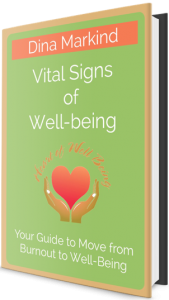 Over the last several years there has been much written about Americans not getting enough sleep. Inadequate sleep is recognized as a health issue which raises the risks for cardiovascular disease, diabetes, depression and obesity.
Over the last several years there has been much written about Americans not getting enough sleep. Inadequate sleep is recognized as a health issue which raises the risks for cardiovascular disease, diabetes, depression and obesity.
One of the positive things with all the information about sleep available is that many benefits have been identified. To name a few, there is greater ability to concentrate, greater integration and learning regarding what has gone on during the day, better judgement, weight stability and decreased risk for the health issues named above, among those who get enough sleep.
It turns out that we need 7 – 9 hours of sleep a night. It sounds like a lot, but when you look back at evolution, and even history prior to the late 1800s, when humans were more in touch with the natural rhythms of light and dark, it makes sense. We have not evolved so much, over the short period of time since electric lights have become wide spread, that our sleep needs have changed dramatically.
For more scientific information, look to the end of this blog post.
Here are some ideas to ensure you get enough sleep:
- Set a regular bedtime – Note the time you have to get up most days and work backwards 8 hours so that you can at least be in bed at this time; then add in the time needed to fall asleep. It is best to be consistent with bedtime, even on the week-ends and on days off.
- Establish a bedtime ritual – the way you may have for young children – brush teeth, read a little and tuck yourself in. As an adult, you’ll vary it to suit you, but once you find a routine that works try to stick to it for a while; your body will develop mental and physical cues that “now” is the time for sleep.
- Turn off electronics – Some experts recommend at least an hour before going to bed, and remember that the 10 or 11 o’clock news can be stimulating and disturbing rather than relaxing.
- Avoid caffeine for 6 hours prior to bed time, and avoid liquor after dinner since alcohol is associated with light sleep only, suppressing REM sleep, and being a diuretic it may cause you to wake up to go to the bathroom during the night.
If you have difficulty with sleep, implementing strategies that work for you, or with other areas of your life adjusting and improving your health contact Dina.
What works for you to get enough sleep? If you have any suggestions to share with others please do so.
The restorative benefits of sleep occur even on the biochemical level of hormones. Without enough sleep, there is a decrease in leptin the “stop-eating” hormone, and increase in ghrelin the “eat-more” hormone. There is also an increase in cortisol which is associated with the stress response. (“To Sleep, Perchance to Gleam,” Whole Living, October2011 p. 111) Limited sleep has been associated with weight gain not only because of hormonal changes but also because people tend to be too tired to exercise and eat more to get energy when they are sleep deprived.





